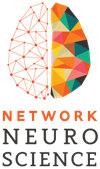A Review of Blockchain Technology in Knowledge-Defined Networking, Its Application, Benefits, and Challenges
IF 3.6
3区 医学
Q2 NEUROSCIENCES
引用次数: 0
Abstract
Knowledge-Defined Networking (KDN) necessarily consists of a knowledge plane for the generation of knowledge, typically using machine learning techniques, and the dissemination of knowledge, in order to make knowledge-driven intelligent network decisions. In one way, KDN can be recognized as knowledge-driven Software-Defined Networking (SDN), having additional management and knowledge planes. On the other hand, KDN encapsulates all knowledge-/intelligence-/ cognition-/machine learning-driven networks, emphasizing knowledge generation (KG) and dissemination for making intelligent network decisions, unlike SDN, which emphasizes logical decoupling of the control plane. Blockchain is a technology created for secure and trustworthy decentralized transaction storage and management using a sequence of immutable and linked transactions. The decision-making trustworthiness of a KDN system is reliant on the trustworthiness of the data, knowledge, and AI model sharing. To this point, a KDN may make use of the capabilities of the blockchain system for trustworthy data, knowledge, and machine learning model sharing, as blockchain transactions prevent repudiation and are immutable, pseudo-anonymous, optionally encrypted, reliable, access-controlled, and untampered, to protect the sensitivity, integrity, and legitimacy of sharing entities. Furthermore, blockchain has been integrated with knowledge-based networks for traffic optimization, resource sharing, network administration, access control, protecting privacy, traffic filtering, anomaly or intrusion detection, network virtualization, massive data analysis, edge and cloud computing, and data center networking. Despite the fact that many academics have employed the concept of blockchain in cognitive networks to achieve various objectives, we can also identify challenges such as high energy consumption, scalability issues, difficulty processing big data, etc. that act as barriers for integrating the two concepts together. Academicians have not yet reviewed blockchain-based network solutions in diverse application categories for diverse knowledge-defined networks in general, which consider knowledge generation and dissemination using various techniques such as machine learning, fuzzy logic, and meta-heuristics. Therefore, this article fills a void in the content of the literature by first reviewing the diverse existing blockchain-based applications in diverse knowledge-based networks, analyzing and comparing the existing works, describing the advantages and difficulties of using blockchain systems in KDN, and, finally, providing propositions based on identified challenges and then presenting prospects for the future.知识定义网络中的区块链技术及其应用、收益和挑战综述
知识定义网络(KDN)必须由知识平面组成,用于生成知识(通常使用机器学习技术)和知识传播,以便做出知识驱动的智能网络决策。在某种程度上,KDN可以被视为知识驱动的软件定义网络(SDN),具有额外的管理和知识平面。另一方面,与强调控制平面逻辑解耦的SDN不同,KDN封装了所有知识/智能/认知/机器学习驱动的网络,强调知识生成(KG)和传播以做出智能网络决策。区块链是一种使用一系列不可变和链接的交易,为安全可靠的分散交易存储和管理而创建的技术。KDN系统的决策可信度依赖于数据、知识和人工智能模型共享的可信度。在这一点上,KDN可以利用区块链系统的功能来共享可信的数据、知识和机器学习模型,因为区块链交易可以防止拒绝,并且是不可变的、伪匿名的、可选加密的、可靠的、访问控制的和不可篡改的,以保护共享实体的敏感性、完整性和合法性。此外,区块链已与基于知识的网络集成,用于流量优化,资源共享,网络管理,访问控制,隐私保护,流量过滤,异常或入侵检测,网络虚拟化,海量数据分析,边缘和云计算以及数据中心组网。尽管许多学者已经在认知网络中使用区块链的概念来实现各种目标,但我们也可以发现诸如高能耗、可扩展性问题、处理大数据困难等挑战,这些挑战是将这两个概念整合在一起的障碍。院士们还没有审查过基于区块链的网络解决方案,这些解决方案适用于各种知识定义网络的各种应用类别,这些网络考虑了使用各种技术(如机器学习、模糊逻辑和元启发式)产生和传播知识。因此,本文填补了文献内容的空白,首先回顾了现有的各种基于区块链的应用在各种基于知识的网络中,分析和比较了现有的工作,描述了在KDN中使用区块链系统的优势和困难,最后,根据确定的挑战提出了建议,然后提出了对未来的展望。
本文章由计算机程序翻译,如有差异,请以英文原文为准。
求助全文
约1分钟内获得全文
求助全文

 求助内容:
求助内容: 应助结果提醒方式:
应助结果提醒方式:


